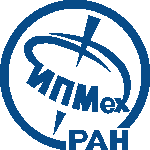
|
ИСТИНА |
Войти в систему Регистрация |
ИПМех РАН |
||
Evidentiality, Multilingualism and Intercultural Communication in the Pomaks’ Community in Greece (Xanthi region, Thrace)доклад на конференции
- Авторы: Климова К.А., Узенева Е.С.
- Международная Конференция : INTERNATIONAL CONFERENCE (UN)REALITY AND EVIDENTIALITY IN LANGUAGE, COGNITION, SOCIETY
- Даты проведения конференции: 24-25 октября 2024
- Дата доклада: 25 октября 2024
- Тип доклада: Устный
- Докладчик: не указан
- Место проведения: Никосия, Кипр
-
Аннотация доклада:
The traditional lifestyle of the Pomaks in Greece remains largely intact, even in their daily lives. The process of everyday communication in Pomaks’ villages in Xanthi can be called multilingualism, because one can observe three different languages: Pomak, Greek and Turkish (plus Quranic Arabic). The complex ethnolinguistic situation in this region is becoming more and more complex every year because the Pomak language is not taught at schools. The aforementioned phenomena have a linguistic, psycholinguistic, and sociolinguistic character. The actual situation of trilingualism in the Pomaks’ community in Greece leads to the formation of complex processes that influence the conscious or unconscious language code-switching and code-mixing in everyday communication. Pomaks prefer to speak Pomak in their everyday communication on basic topics, moreover, it seems to be the main language code in the most conservative rural area. The geographic location of the settlement also plays a significant role. In the remote mountain villages, the Pomak language is used in everyday communication, while the villages to the east of Xanthi tend to use Turkish. A similar situation is observed in the traditional culture. While remote mountain villages tend to exhibit more archaic Slavic beliefs, the villages situated in the valley to the east of Xanthi, predominantly feature narratives influenced by Turkish (Islamic) traditions.
- Добавил в систему: Климова Ксения Анатольевна